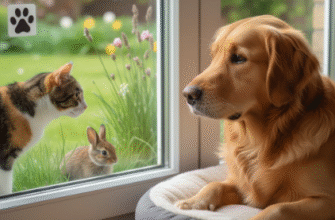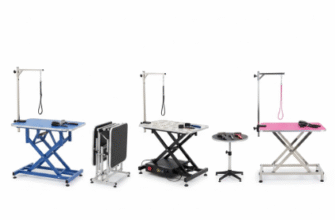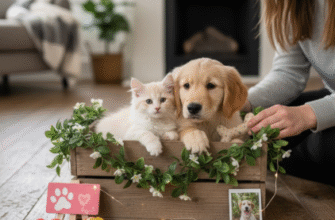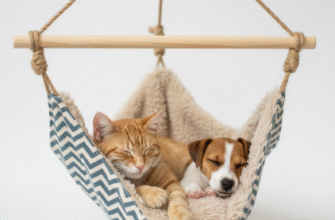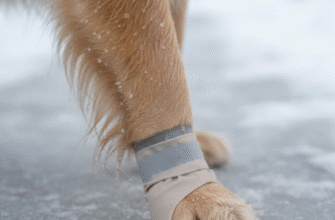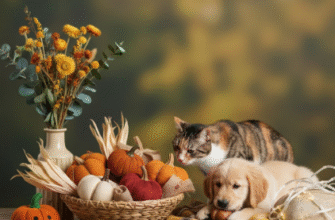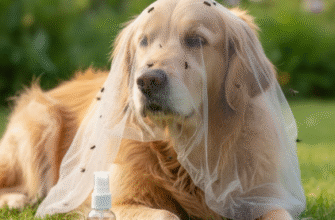Bringing a dog into your life during your senior years can be incredibly rewarding. The companionship, the gentle nudge for a short walk, the warm presence on a quiet evening – these are joys many cherish. If you’re considering getting your very first dog later in life, congratulations! It’s a wonderful decision, but one that requires thoughtful consideration, especially when choosing the right furry friend. Finding a dog whose needs and personality mesh well with your lifestyle is key to a happy, long-lasting relationship for both of you.
Unlike choosing a dog when you’re younger, perhaps with a bustling family and boundless energy, selecting a canine companion as a senior first-time owner involves a slightly different set of priorities. It’s less about finding a dog to keep up with intense activities and more about finding a compatible partner for your current pace of life. Let’s explore what makes a dog breed potentially suitable for someone new to dog ownership in their golden years.
Matching Energy Levels: A Crucial First Step
This is perhaps the most critical factor. It’s easy to be charmed by an energetic puppy or a breed known for its athleticism, but honestly assess your daily activity level. Do you enjoy leisurely strolls in the park, or are you mostly home-based? A high-energy dog, like a Border Collie or Jack Russell Terrier, cooped up without enough physical and mental stimulation can develop behavioural issues out of sheer boredom and frustration. This isn’t fair to the dog and can be incredibly stressful for you.
Look towards breeds generally known for lower to moderate energy levels. These dogs are often content with shorter walks, some gentle playtime, and plenty of quality time relaxing indoors with their favorite person. Think about dogs that enjoy companionship over constant action. Remember, every dog needs some exercise, regardless of breed, for physical and mental health, but the intensity and duration vary wildly.
Considering Size and Strength
Size is another significant consideration, but it’s not as simple as small equals easy. While a tiny dog might seem manageable, some toy breeds can be delicate and potentially prone to injury from an accidental trip or fall. They can also be quite vocal. Furthermore, their small size makes them easy to overlook underfoot, which can be a tripping hazard.
Large breeds, conversely, require more space, larger quantities of food, and potentially more physical strength to manage, especially if they pull on the leash or need help getting up as they age. An unexpected lunge from a large, untrained dog could pose a risk.
Often, a small-to-medium sized dog offers a good balance. They are sturdy enough to avoid accidental injury easily, less likely to knock someone over unintentionally, and generally easier to handle physically for grooming, vet visits, or guiding on a leash. Breeds that fall into a comfortable middle ground in terms of size and strength are often excellent starting points.
Temperament and Trainability: The Heart of Compatibility
A dog’s typical temperament is paramount. For a first-time senior owner, a dog with a calm, gentle, and adaptable nature is usually the best fit. You’ll want a dog who is friendly towards people, generally unflappable, and enjoys quiet companionship. Breeds known for being overly independent, stubborn, highly sensitive, or excessively territorial might present challenges for a novice owner.
Trainability is also key. While all dogs require training (house-training, basic commands like sit, stay, come), some breeds are naturally more eager to please and pick things up faster than others. A dog that is difficult to train can be frustrating and may make the initial adjustment period more stressful. Look for breeds often described as intelligent and responsive. Positive reinforcement training methods work best for all dogs and build a wonderful bond between pet and owner.
Remember that breed tendencies are just guidelines. Individual dogs within any breed can vary significantly in personality and energy level. Always spend time interacting with a specific dog before making a commitment to ensure their individual temperament is a good match for you.
Grooming Needs: Time and Effort
Every dog needs some grooming, but the requirements vary immensely. Long-haired breeds like Shih Tzus or Poodles require regular, often daily, brushing to prevent matting, plus professional grooming appointments every 4-8 weeks. Wire-haired breeds may need stripping, and heavy shedders will require frequent brushing to manage loose hair around the home.
Consider if you are physically able and willing to perform regular grooming tasks. If not, factor in the ongoing cost of professional grooming services. Short-haired breeds often require less intensive grooming – perhaps just a weekly brush-down – which can be a significant advantage for seniors looking for a lower-maintenance companion.
Considering Potential Breeds: Examples to Explore
Keeping the above factors in mind, here are a few breed types and specific examples often considered good companions for seniors. This is not an exhaustive list, and thorough research into any breed is essential.
Gentle Smaller Companions
- Cavalier King Charles Spaniel: These dogs are known for their sweet, gentle nature and adaptability. They enjoy companionship and are typically happy with moderate exercise like daily walks. Their coat requires regular brushing.
- Bichon Frise: Cheerful and affectionate, Bichons are relatively small and have a low-shedding coat (though it requires significant grooming). They are generally playful but don’t need excessive exercise.
- Shih Tzu: Bred primarily as lap dogs, Shih Tzus thrive on human company. They have modest exercise needs but require diligent grooming to maintain their long coat.
- Miniature Poodle: Highly intelligent and trainable, Poodles shed very little but need regular professional grooming. They are adaptable and come in various sizes (Toy, Miniature, Standard), with the Miniature often being a good fit for seniors.
Sturdier Medium Options
- Pembroke Welsh Corgi: Intelligent and relatively sturdy, Corgis have personality plus. They do need moderate exercise to keep them happy and have a tendency to shed quite a bit. Their independent streak means consistent training is beneficial.
- Greyhound: Surprisingly, retired racing Greyhounds are often described as “45-mph couch potatoes.” They enjoy short bursts of speed in a secure area but are frequently calm and relaxed indoors. Their short coat is low-maintenance.
The Wonderful World of Adoption: Considering Adult Dogs
Don’t overlook the possibility of adopting an adult or even a senior dog from a local shelter or rescue organization. Puppies, while adorable, are a tremendous amount of work – requiring constant supervision, house-training, socialization, and dealing with chewing and boundless energy. This can be overwhelming for anyone, especially a first-time senior owner.
An adult dog often comes with many advantages:
- Known Personality: Their temperament and energy level are already established, making it easier to find a good match. Shelter staff can provide valuable insights.
- Potentially Trained: Many adult rescue dogs already have some basic training, including house-training.
- Skipping the Puppy Stage: You bypass the demanding sleepless nights, chewing phases, and intense initial training period.
- Giving a Second Chance: Providing a loving home for an adult dog is incredibly rewarding.
Many shelters have specific programs to match senior citizens with suitable companion animals, sometimes even offering reduced adoption fees. Talk to your local shelters and rescue groups; they are experts at matchmaking!
Before bringing any dog home, honestly evaluate your physical capabilities, financial situation (considering food, vet care, grooming), and the long-term commitment involved. Dog ownership is typically a 10-15+ year responsibility. Ensure you have arrangements or support systems in place should your own health or circumstances change.
Preparing for Your New Friend
Once you’ve considered the factors and perhaps have a type of dog or even a specific dog in mind, prepare your home. Ensure you have the necessary supplies: food and water bowls, a comfortable bed, appropriate food, collar/harness and leash, some toys, and grooming tools. Find a local veterinarian you trust for check-ups and future care.
Think about your daily routine and how the dog will fit in. Where will they sleep? When will you walk them? Plan for an adjustment period as both you and your new companion get used to each other. Patience, consistency, and lots of affection are key.
The Joy of Companionship
Choosing the right dog as a first-time senior owner is about finding a friend who fits seamlessly into your life, bringing joy without adding undue stress. By carefully considering energy levels, size, temperament, grooming needs, and the wonderful option of adopting an adult dog, you can find the perfect canine companion to share your days. The love, laughter, and quiet comfort a well-matched dog brings can enrich your senior years immeasurably. Take your time, do your research, meet potential dogs, and trust your instincts to find the furry friend who is waiting to become part of your life.

